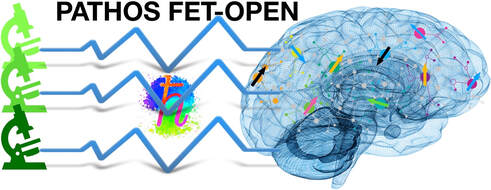We are coordinating an EU FET-OPEN project "PATHOS" (2019-2024) - click here for more details.
|
Quantum Sensing
The dynamics of any (so-called open) quantum system is unavoidably influenced by the external environment. Thus, the observation of a quantum system (probe) can allow the measure of the environmental features. This task is also known as quantum sensing, quantum probing or noise sensing. The success of quantum noise sensing methods usually depends on the optimal interplay between properly designed control pulses and statistically informative measurement data on a specific quantum-probe observable. In our group, for instance to spectrally resolve a noise field coupled to the quantum probe, we employ dissipative manipulations of the probe, leading to so-called Stochastic Quantum Zeno (SQZ) phenomena. A quantum system coupled to a stochastic noise field and subject to a sequence of protective Zeno measurements slowly decays from its initial state with a survival probability that depends both on the measurement frequency and the noise. We have recently proposed a robust sensing method to reconstruct the unkonwn noise power spectral density by evaluating the survival probability that we obtain when we additionally apply a set of coherent control pulses to the probe. The joint effect of coherent control, protective measurements and noise field on the decay provides us the desired information on the noise field. As an alternative approach, measurements and controlled manipulation of the probe such as dynamical decoupling sequences as an extension of the Ramsey interference measurement allow to spectrally resolve a noise field coupled to the probe. In the last years, we have introduced and analysed fast and robust estimation strategies for the characterization of the spectral properties of classical and quantum dephasing environments. These strategies are based on filter function orthogonalization, optimal control filters maximizing the relevant Fisher Information and multi-qubit entanglement. We have investigated and quantified the robustness of the schemes under different types of noise such as finite-precision measurements, dephasing of the probe, spectral leakage and slow temporal fluctuations of the spectrum. The achievement of these tasks will enhance our capability to observe and manipulate open quantum systems, thus bringing advances to quantum science and technologies. |

